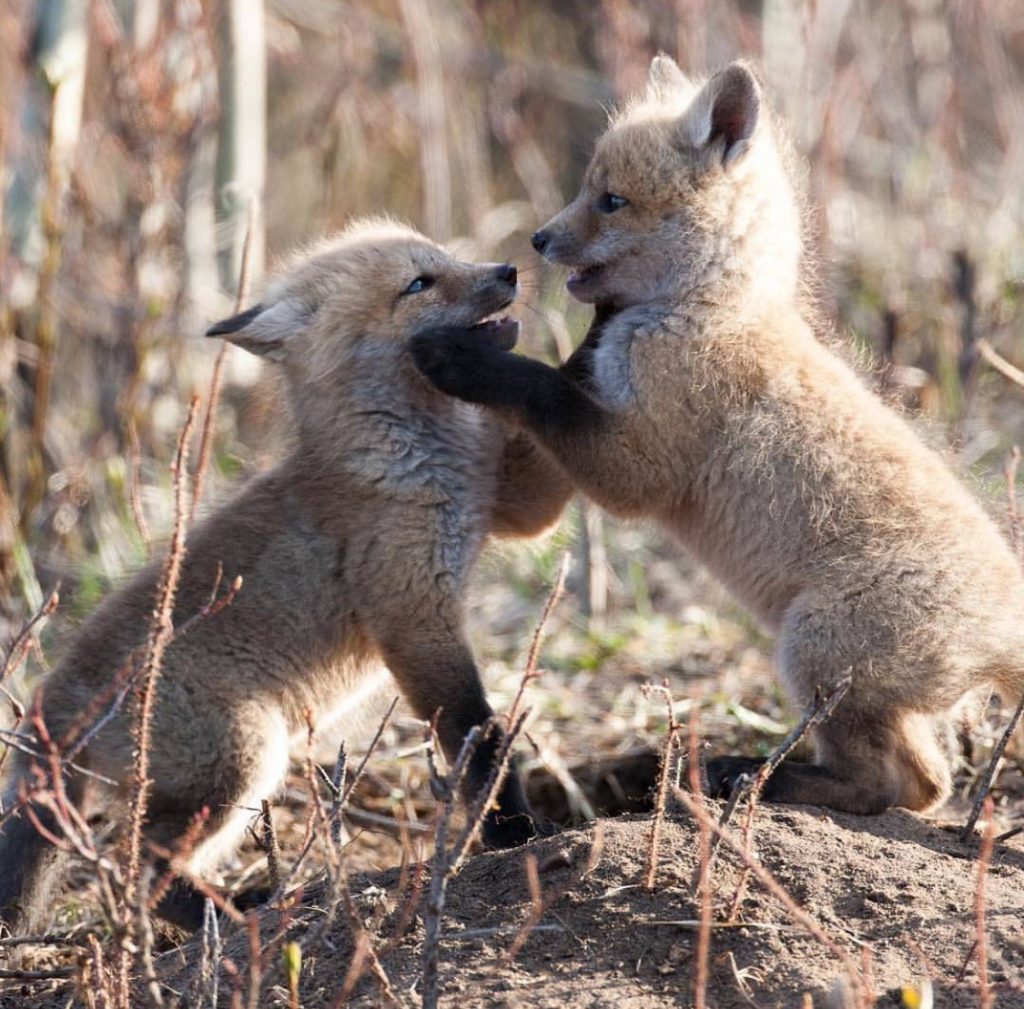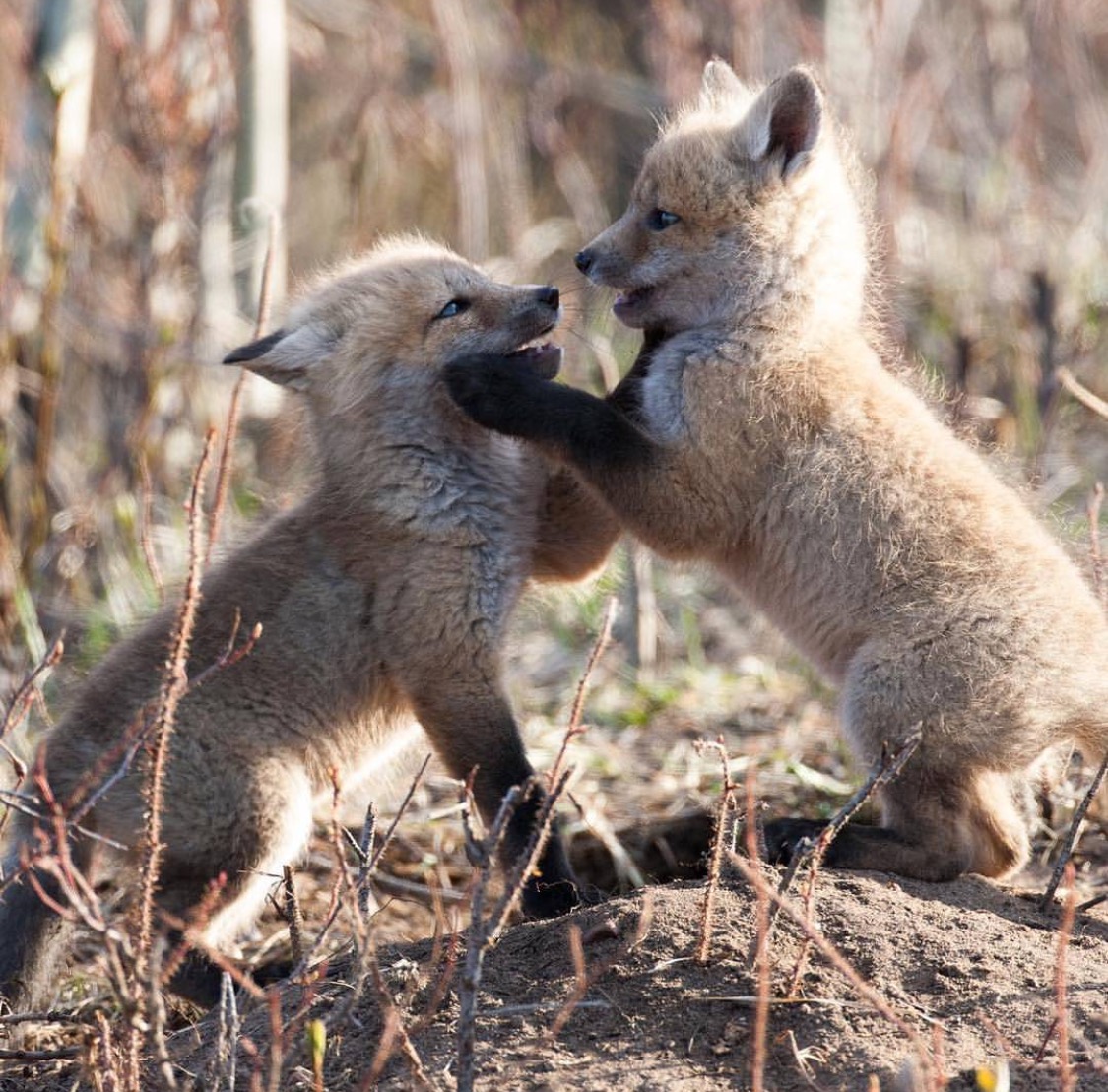
They’re a little unconventional, and they require a little bit of extra attention.
Do a YouTube search for pretty much any smallish animal you can think of and there’ll be several videos of a “tame” or “pet” version. Any feline, any canid, any mustelid (weasel), any procyonid (raccoon), any non-bonkers primate (baboons, which are completely terrifying, are exempt). Look at my pet kinkajou, my pet genet, my pet fennec fox, my pet ocelot. And then on the videos of cute furry animals in the wild, you’ll see the comments: “omg i want it.” When the internet sees a video of a red panda, the internet wants a red panda. Even though a red panda is endangered and a wild animal.
In 1959, a Soviet geneticist named Dmitry K. Belyaev began somewhat secretively experimenting with breeding domesticated foxes. More than five decades, thousands of foxes, and one collapse of the Soviet Union later, the program continues at The Institute of Cytology and Genetics at Novosibirsk, Siberia. Belyaev wanted to unlock the secrets of domestication, the links between behavior and breeding and physical traits, but plenty of non-scientists are aware of the project for a different reason: foxes are adorable, and we want to hug them, and we want them to like it.
The Soviet (and later, Russian) study out there in Siberia did eventually breed a domesticated silver fox (read: a red fox with silver fur) that’s pretty close to our dream fox. It loves and craves attention from people, it’ll lick your face, it’ll cuddle with you, it’ll wag its giant puffy tail when it sees you, it’ll play with toys in your house while you try to take the perfect Instagram picture of it. Wild foxes will not do this; they will either run away from you or attempt to bite your face off. Tame foxes may not flee or attack, but they also won’t cuddle. These domesticated foxes, on the other hand, have between 30 and 35 generations of selective breeding behind them, with careful monitoring to ensure a lack of inbreeding, and they’re not even close to wild–in fact, they probably wouldn’t survive in the wild.
How’s A Domesticated Fox As A Pet?
So what’s it like to have a domesticated fox as a pet? Not quite like a dog, -a fox isn’t a cool-looking dog, it’s a different animal with different behavioral quirks.
They also need an outdoor enclosure Which cost a few thousand dollars to build and is filled with sand so The fox can dig. And fox urine is a major problem: you should “imagine cat pee, but a million times worse. It smells like skunk, it’s the most pungent thing in the universe. If it gets in your carpet, you need a special enzyme to break it down, so if your fox marks [your home], that’s pretty destructive.” Some foxes can be house-trained to use a litter box, but they will still sometime mark their environment.
The total cost of importing a fox into the continental USA, including the purchase price , is $8900 -subject to change (please contact us if you live outside of the USA for pricing, terms, and conditions on transportation and delivery). The color choice and sex is up to the individual buyer and has no affect on the price of the animal – the institute’s cost is the same for red, silver/black, platinum, or whites – males or females.
All animals are personally accompanied for each shipment to ensure the safety and welfare of the animals**. The kits will come directly to your home in FL – the owner has the choice of coming to pick their kit up or for a delivery fee and expenses, you can transport the animal directly to you from FL. Prior to obtaining a contract and deposit, you must provide confirmation from your state and local authorities that you have permission to own the animal as well as copies for our records of any permits/licenses needed. If you need assistance, please give us your county of residence and we will be happy to contact the state and local authorities directly for approval if needed.
We are happy to accompany the foxes worldwide. Please contact us if you need help determining your country import regulations for the domestic foxes.
Please do not hesitate to contact us (FeaturingAnimals@aol.com) for additional information or to complete Information Questionaire.
Contacts
Featuring Animals
PO Box 940008
Maitland, FL 32794-0008
USA
(407) 645-5000





